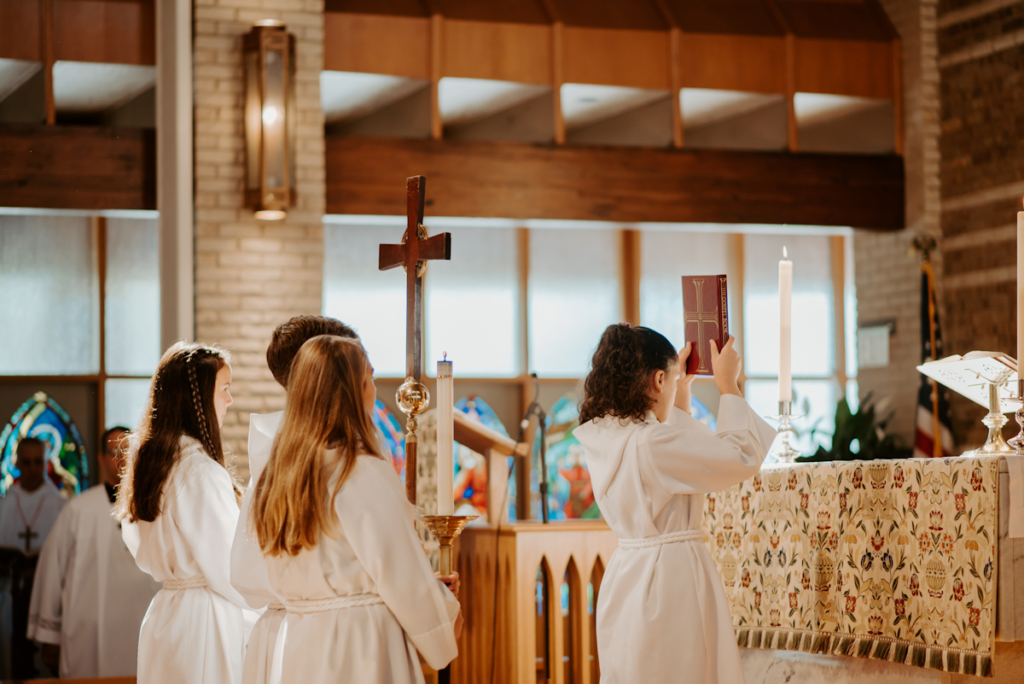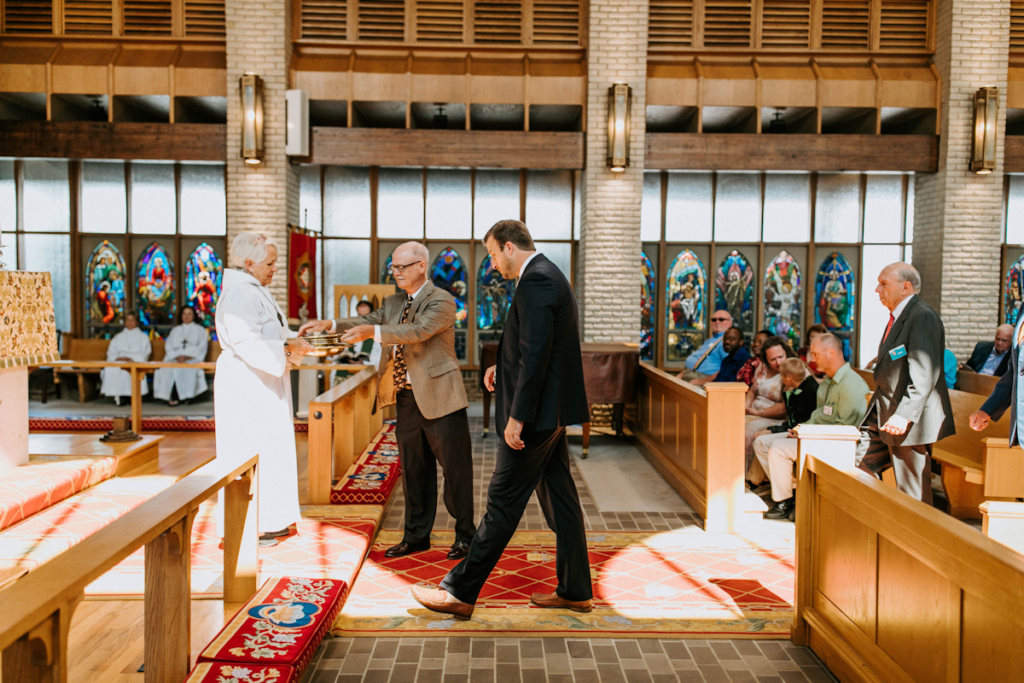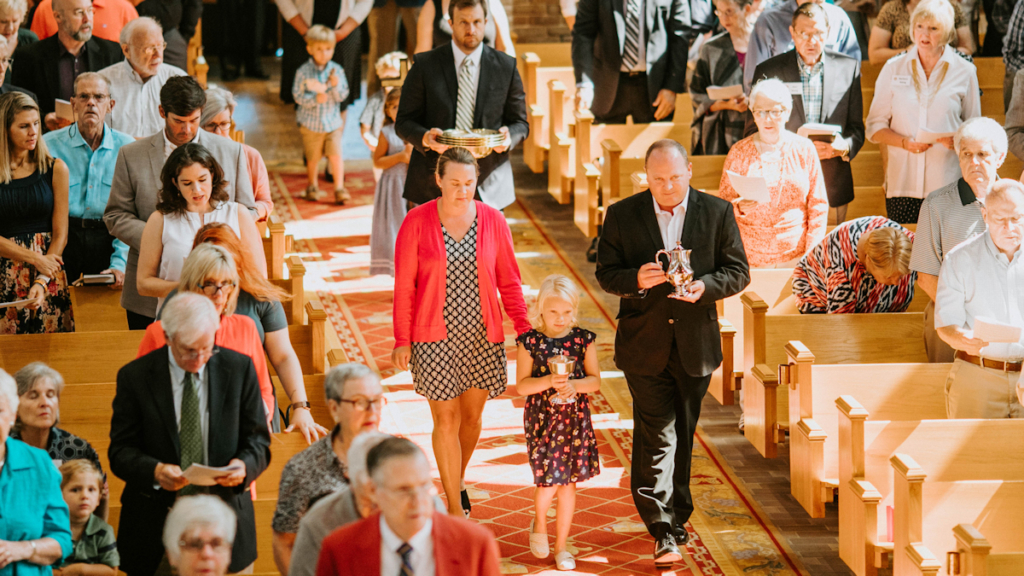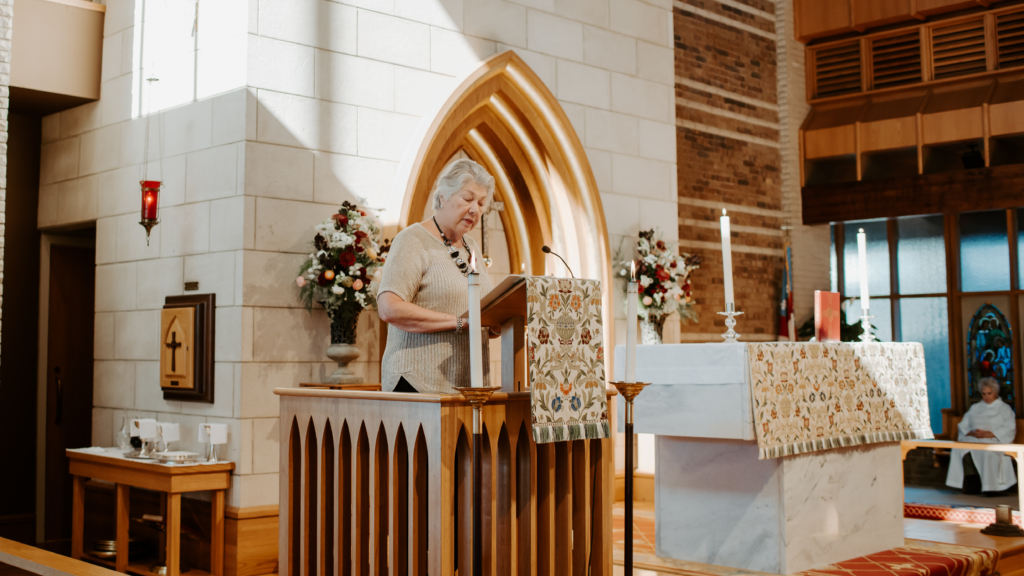Want to Be More Involved in Worship?
Now that we have returned to in-person worship as well as online possibilities, it is important to remind folks of all the different moving parts on a Sunday and how you (yes, you!) can be more involved.
Acolytes
Acolytes are essential to a full worship. They assist in a variety of roles from the procession, throughout Holy Communion, and through the recessional at the close of the service. There is a saying that, if they do their jobs well, the congregation will not remember seeing them. But, don’t let this fool you into thinking they aren’t busy OR thinking that there is a standard of perfection such that it is too frightening to attempt. Quite the contrary on both counts! The acolytes work directly with the verger and the clergy in every aspect of the service, and will be very busy! As for being intimidated by the expectations, acolytes work in teams and more senior acolytes are always paired with newer folks to provide assistance and answer questions. This important role is serious, and should be considered by those who are serious about wanting to “get behind the scenes” so to speak in order to learn more about our faith and practices. The best news of all is that there is no age limit for serving in this role. One needs only be strong enough to carry the processional cross and hold the heavy gold Gospel Book from time to time.

Ushers
Ushers may be the first face of Christ that people see when they arrive for worship on Sunday mornings or for funerals. They are the first persons to smile and welcome worshipers. Whether greeting old friends or spotting the tentative expressions on the faces of a new family visiting for the first time, ushers hospitably guide people into the Nave. Besides handing out service leaflets, ushers answer questions about locating Nursery or restrooms, provide assistance with hearing devices or cushions for more comfortable seating. Once the worship begins, ushers discretely count attendance in order to let the clergy know how many hosts to prepare for communion. During communion, ushers help guide the congregation to the altar rail in an orderly fashion, and during the Offertory, they pass the offering plates up and down the pews. Remaining in the Narthex for much of the service, ushers provide an essential connection between what happens in the Nave and what is happening in various places throughout the campus, sometimes delivering critical information even during a service. Like acolytes, ushers also serve in teams, with more seasoned ushers assisting newer ones. Children may also serve alongside a parent on occasion, an important way to apprentice for this role. Above all, ushers must be friendly, welcoming, and attentive.

Oblation Bearers
Oblation Bearers enact a deeply theological aspect of our praise and thanksgiving to God, bringing forward from the people a gift of our tithes and offerings that are then received by the celebrant and placed on the altar for the prayer of consecration. By bringing forward the bread and wine, they represent with these gifts the “first fruits” of our labor on the land, offering our own bread and wine to be used by God to be for us the body and the blood of our Lord Jesus. Anyone, single or part of a family, may act in this role. For families, it is an excellent way for young children to physically understand that they are worship participants, not just observers. For single persons, acting alone in this role surrounded by the entire congregation is a living example of how we are each part of something greater than ourselves. Oblation bearers remain in the Nave during the entire service, excusing themselves at the passing of the peace to join the ushers (who will carry the collection plates) at the entrance to the Nave in the Narthex, joining with them to process to the altar. The verger or an usher will make sure that the oblation bearers understand what to do so that they feel comfortable in this role.

Lectors
Lectors read the lessons from the pulpit and the Prayers of the People each Sunday. Because the lessons are essential elements in the Ministry of the Word, persons well-suited for this role should be comfortable speaking in public and be open to receiving some instruction by the clergy or vergers in how to read in our particular space. With the vaulted ceilings and slate floors, our acoustics affect how sound travels, and so practicing and familiarity with the texts is essential. Readings are always sent midweek by email, well in advance of Sunday, so that readers may practice. Clergy are always available to answer questions about pronunciation, especially since many of the words are Hebrew or Greek. In addition, on Sunday mornings, there will be a copy of the readings on the pulpit. If you are chosen to offer the Prayers of the People, it is always a good idea to arrive sufficiently in advance of worship to check in with the clergy or verger about any updates to the prayers that have come up since a copy was emailed earlier in the week. Reading well is a skill that requires the reader to hit a sweet spot between sounding too casual and too dramatic, a balance easily achieved with care and attention. There is no age limit to reading. One needs only to be able to project one’s voice sufficiently and be able to move smoothly through the text, usually not younger than middle school age. (We have step stools to accommodate for those with smaller stature than the pulpit was originally designed to accommodate.)

These are just a few of the opportunities for individual or family participation in the worship here at Grace. Please contact Jess Voyles, if you are interested in serving in one or more of these roles.